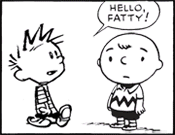|
readingatwork posted:Better education would help with anti-intellectual mindsets but I don't see how that improves the economic situation of a town who's only job creation mechanism was moved overseas. It certainly won't make them vote Democrat if that's what you're thinking. Sorry, I should have elaborated on my thinking. My thought about education is that the lack of education makes it harder to get effective solutions to the economic issues passed. Like it or not, manufacturing jobs that pay as well as they used to aren't coming back. Any solution to the economic problem has to address that underlying aspect of macroeconomic change, which is why we see reactive answers, like killing unions and the minimum wage in vain to keep the remaining jobs here, or ending globalism to bring the jobs back. None of these three policy solutions will actually bring good paying jobs back, but rural sentiment often rejects such claims through the ongoing anti-intellectualism that is a hallmark of their being left behind from an educational standpoint. As a result, rural politics can often seem self-defeating precisely because of this anti-intellectualism and the consequent certain-to-fail policies often promoted from the rural areas themselves. Of course the alternative is not much more appealing. All too often, "serious" policy discussions get watered down ("job training" anyone? Or how about the endless calls for people to "just move", for which the OP has already presented the counter argument) so rural politics does have a point when they claim that intellectuals have failed them. Intellectual policies have, at least for now, proven to be diffuse in their actions and diffuse in their results, such that the immediate impact of another closed factory weighs so much more than the promise that "at least your kids will be able to participate in the knowledge economy!" I guess what I'm getting at is the fact that the anti-intellectualism fostered by poor education not only limits opportunities (what "knowledge economy" company wants to put a branch where locals can't actually compete for jobs?) but also solutions (because easy to understand "common-sense" solutions that are demonstrably short-sighted are so much more easily favored over more complex solutions that are comparatively untested but may hold better long-term prognoses.) So in short, it feels like it's hard to help rural areas succeed because their level of education (and consequent anti-intellectualism) works against any such (practical) help.
|
|
|
|

|
| # ? May 6, 2024 21:10 |
|
Popular Thug Drink posted:also in this goon's opinion this thread is going to be super dumb and go nowhere if you all keep arguing about laying waste to rural america because that's just pointless opinion jousting and also it's already happening, right now, except via free market methods such as diabetes and overdosing Can't speak for the future of the thread but as an isolated (and--while I'm being honest with myself--self-centered) middle-class suburban white guy, reading the OP has been enlightening and depressing in equal measure (ok more like 30/70 but I have to take medication for that) So thanks for posting it I guess, Toph 
|
|
|
|
Popular Thug Drink posted:not really. what Dr. Angela Ziegler is trying to get it (but being kind of creepy about) is the concept of economic geography. what you're associating that with by calling out ville contemporaine is just the european style of midcentury modern urbanism - the american version would be wright's broadacre city, which is suburban as gently caress. the idea is basically concentrating buildings to maximize greenspace. you're using these concepts as scare quotes around something completely different, and missing the point ComradeCosmobot posted:Like it or not, manufacturing jobs that pay as well as they used to aren't coming back. Any solution to the economic problem has to address that underlying aspect of macroeconomic change, which is why we see reactive answers, like killing unions and the minimum wage in vain to keep the remaining jobs here, or ending globalism to bring the jobs back. A neo-New Deal would obviously be amazing, and I'd be all for it, but it's about as likely to happen as my idea of roping them off and watching them fight to the death over the last ten boxes of smurfed Sudafed. One of the things that could actually be done to revitalize Detroit is actually exactly my plan, and could be done today using the odious "Install a City Manager" law used by Gov. Snyder to gently caress with Benton Harbor to take the public land away from black people and give it to golf course developers. The idea is essentially use a protractor to draw a circle around downtown Detroit, out to the farthest that is reasonable, and say "this is now Detroit. Anything outside this, we no longer serve" and offer relocation inside that circle. This would concentrate tax bases and reduce the distance (and need for multiple stations) of emergency/police services, solving a lot of problems and filling in a lot of empty land. It's monstrous, but the alternative, lassaiz-faire method is also monstrous in its inertia and dedication to doing nothing. (USER WAS PUT ON PROBATION FOR THIS POST)
|
|
|
|
Yeah, unfortunately if you're not involved in resource extraction, then there really just isn't any point to living in the country other than being afraid of crowds.
|
|
|
|
Ciaphas posted:Can't speak for the future of the thread but as an isolated (and--while I'm being honest with myself--self-centered) middle-class suburban white guy, reading the OP has been enlightening and depressing in equal measure (ok more like 30/70 but I have to take medication for that) yeah i'm not knocking the op at all, this could be an interesting thread but i've been a goon for 13 years and every thread that relates to urbanism or urban politics rapidly descends into pointless bickering about whether cities are good or bad, it's so dumb regardless of where you prefer to live, it is a fact that america and the world are increasingly urban and that urbanity = prosperity (not for everyone, obviously) Dr. Angela Ziegler posted:Exactly. Obviously I overstated my case because I have an extreme antipathy for those backwoods fucks, but modernism has a place. I'll settle down and contribute, but I don't think starting from the point of "should rural America exist?" is a wrongheaded viewpoint. it does exist and it's going to continue to exist
|
|
|
|
Popular Thug Drink posted:yeah i'm not knocking the op at all, this could be an interesting thread For the same immense cost (in both treasure and political capitol) to lay fiber to 500,000 rural hicks so they can stream netflix faster, we could help 100,000,000 in cities break the back of Comcast, the worst company in America, and actually help a lot (more) poorer people in the city get access to desperately-needed high-speed, gov't-owned internet access. 500,000 vs 100,000,000. But no, people have a right to suck up resources by choosing to live 13 miles from a telephone pole.
|
|
|
|
Kristov posted:Yeah, unfortunately if you're not involved in resource extraction, then there really just isn't any point to living in the country other than being afraid of crowds. What about subsistence farming? In a world being slowly destroyed by modern economics, it takes a truly virtuous man to raise sheep and barley in the wilderness just to feed himself. Such a man is blameless and free. This makes rural America the only moral America.
|
|
|
|
Jesus, I thought the OP was belabouring the 'hey don't poo poo on the rural poor' point a little too hard in this, the most left wing of left wing forums. Evidently I was wrong. I'm trying to imagine what farming or other geospecific jobs (i.e. not everything can be telecommuted if you think for a second) would look like without small towns, setting aside the horrible nightmare of forcibly relocating populations to new communities. Like, would farms completely reorganize to company towns set on vast tracts of corporate owned land? I realize that's where agriculture is headed anyway but I didn't think that's what people wanted. You can't get around the fact that people will end up in the middle of 'nowhere', which I guess is anywhere outside of major metropolises, but maybe those places don't have to be lovely nightmare holes to live in? I imagine if they weren't lovely nightmare holes maybe they would produce fewer desperate angry people.
|
|
|
|
Dr. Angela Ziegler posted:For the same immense cost (in both treasure and political capitol) to lay fiber to 500,000 rural hicks so they can stream netflix faster, we could help 100,000,000 in cities break the back of Comcast, the worst company in America, and actually help a lot (more) poorer people in the city get access to desperately-needed high-speed, gov't-owned internet access. oh hello someone arguing against rural electrification in 1933 how are you, how are your stocks doing Tiny Deer posted:I'm trying to imagine what farming or other geospecific jobs (i.e. not everything can be telecommuted if you think for a second) would look like without small towns, setting aside the horrible nightmare of forcibly relocating populations to new communities. Like, would farms completely reorganize to company towns set on vast tracts of corporate owned land? I realize that's where agriculture is headed anyway but I didn't think that's what people wanted. it's not like small towns are going to disappear entirely - well, most of them won't - there's just a lot of economically surplus population who is going to be reduced one way or another, through low birth rates or outmigration or mass incarceration what have you until a new economic equilibrium is reached there's just going to be a lot of blood and tears along the way as people are born into lovely poverty and really this is no different from large swathes of the world except that, not too long ago, rural americans had some semblance of prosperity and now there's just a big existential grapple to figure out why that's not the case anymore (because the 20th century was a historical aberration not a new waypoint on the march to the glorious future) boner confessor fucked around with this message at 21:35 on Aug 26, 2016 |
|
|
|
In light of that, it might be more productive to try and think of reasons for country towns to exist other than resource extraction, then go from there. E: also farming/reaching = resource extracting as well as logging or mining. Kristov fucked around with this message at 21:35 on Aug 26, 2016 |
|
|
|
Tiny Brontosaurus posted:Mincome, full public health coverage including vision, dental, and family planning. I have always said that I would vote for any candidate willing to push for a new WPA and/or new, new deal (although I recently came across a nativist candidate who proposed exactly that, so maybe not always...). But the problem often seems to be that these rural areas vote for candidates who are ideologically opposed to exactly that. What can you realistically do?
|
|
|
|
It blows my mind that ~15% need to get "food handouts" in OPs town. Isn't it more a question of rural destitution? Granted, I'm not American, but if large parts of a community is going to starve if you don't get help from local food drives, you must be something other than poor?
|
|
|
|
Kristov posted:In light of that, it might be more productive to try and think of reasons for country towns to exist other than resource extraction, then go from there. i mean, there really aren't any. small towns can try to focus on some gimmick like ecotourism or winemaking or something which attracts money and visitors from the big city - maybe some fortunate local son decides to open a call center or programming sweathouse or some other niche production facility - but by and large the first world is a service-based economy now, and services require population to thrive, and if you don't have a sufficient population to support everyone in some service job as well as some local faucet which produces export goods/services to actually draw money to the community which then circulates in the service sector then you're hosed that's all you need, actually. some local faucet which produces export goods/services to actually draw money to the community which then circulates in the service sector. but as of today there's not a lot of those sorts of businesses which fit into rural towns which are typically older, whiter, less educated and less cosmopolitan. so for now it's just a big cutthroat game of musical chairs, but with meth
|
|
|
|
Kristov posted:In light of that, it might be more productive to try and think of reasons for country towns to exist other than resource extraction, then go from there. I can't speak for all towns, but the two I largely grew up in existed to service local farms and the national park slightly north of us. I would argue those are both resource extraction related, if you view a park and the things it does as a resource. (I do.) Putting my sarcastic sniping at the idea of dissolving small towns, I'm curious what the alternative to them could be. I don't know how you could convince people to commute from the nearest city (an hour each way) to do forestry or site evaluations on a large enough scale to run a park. I really don't know how you could do the same thing with farming. I think we can all pretty much agree a two hour commute is a nightmare and making hundreds of people do it every day would be even moreso--and that's just where I grew up. I'd assume even if you had company barracks at some point somebody would get the idea of providing meals to fellow workers for a fee. Somebody else would start driving in with a trunk of dollar store supplies and sell people toiletries at a premium. Someone else would start cutting hair. Then you have a rural town again, except probably even worse. None of this is directed at you, Kristov, your question just sent me on a thought experiment. It'd probably be a decent YA dystopia novel.
|
|
|
|
ComradeCosmobot posted:Like it or not, manufacturing jobs that pay as well as they used to aren't coming back. Any solution to the economic problem has to address that underlying aspect of macroeconomic change, which is why we see reactive answers, like killing unions and the minimum wage in vain to keep the remaining jobs here, or ending globalism to bring the jobs back. While I kind of agree with you in a broad sense I want to point out that killing globalism is absolutely on the table. Globalism isn't a shift in the weather, it's a series of economic decisions made over the past two decades explicitly designed to pit well-paid American employees against third world sweatshops. Going back is just a matter of undoing the laws that got us here in the first place. Or, if for some reason we don't want to get rid of globalism all together I guess we could at least implement the protections that were promised in the 90s. For example, requiring countries that get jobs outsourced to them to meet certain wage/working condition requirements or risk having their factories shut down.
|
|
|
|
readingatwork posted:While I kind of agree with you in a broad sense I want to point out that killing globalism is absolutely on the table. Globalism isn't a shift in the weather, it's a series of economic decisions made over the past two decades explicitly designed to pit well-paid American employees against third world sweatshops. Going back is just a matter of undoing the laws that got us here in the first place. globalism isn't entirely the fault of trade policy or sinister elites. containerized shipping, automation in production and goods handling, effective and cheap telecommunications, sustained investments in transportation infrastructure, better standards of quality control and production, etc. so on all make it more attractive to produce widgets where labor is low american manufacturing is still succeeding in certain areas where we can compete well, such as precise complex devices which need to be on the factory floor tomorrow, or excessively delicate and bulky objects which are hard to transport. it's just that the people in Flyover, Arkansas got used to getting a job at the Down Home Broom Factory when there's no real reason to manufacture brooms, or buckets, or any number of simple goods in america where you have to pay a dude $15/hr when you can pay a chinese dude $1/hr and have it shipped to the us for $1/u readingatwork posted:Or, if for some reason we don't want to get rid of globalism all together I guess we could at least implement the protections that were promised in the 90s. For example, requiring countries that get jobs outsourced to them to meet certain wage/working condition requirements or risk having their factories shut down. we should absolutely do this but even then it wouldn't bring back any jobs
|
|
|
|
When poor rural areas both have a disproportionate say in Congress, and are determined to vote for the party that is trying to plow them under the fastest, there really isn't much that can be done for them because they themselves make it practically impossible. I'm not saying Democrats care about the issue nearly enough, but the Republicans are literally the "gently caress public education and health care" party, and they have infinite power in the areas that are often in most need of those two things because the Southern Strategy of plausibly deniable race hate is some kind of electoral cheat code in about half the loving states in this country. When they vote at all they're going to vote for Trump, an anti-Christian city slicker con man who hates them all and flees from his rallies in his airliner every day to go poo poo in a gold toilet. And the observant protestant Christian whose family actually worked for a living and who actually did things to help the rural poor is the Devil herself because reasons. Just gently caress everything forever basically. 
|
|
|
|
Helsing posted:This is exactly the kind of creepy totalitarian thought process that motivated High Modernist architects and urban planners like Le Courbusier and it resulted in some of the most horrific planning disasters of the 20th century. While I fully agree with this, these areas do present a challenge economically, one that I can't really think of a good solution for. There aren't a whole lot of high-manpower industries interested in physically locating in remote areas with little infrastructure, extremely thin population density, mostly uneducated and unskilled workers, and American cost-of-living. What path forward exists for these areas other than perma-welfare? A New New Deal would be a temporary fix at most, because there's no real economic fundamentals there for it to kick-start, so once the massive influx of free federal money slows down, all these regions will slump right back down into the same economic stagnation they started in. The only things these areas have to offer to a modern economy are unskilled manpower, large amounts of cheap land, local governments that are easy to bribe, and all the meth you could ever want. Education and transportation won't help either - all other things being equal, the benefits to being near a major population center still outweigh the benefits of being in flyover country. Tiny Deer posted:Jesus, I thought the OP was belabouring the 'hey don't poo poo on the rural poor' point a little too hard in this, the most left wing of left wing forums. Evidently I was wrong. The problem is what happens when the farms lay off 90% of their workers thanks to automation, and then the local unemployment rate breaks 50% the next day and never goes down again because the town was built around the farms and the only types of job there are "farm worker" and "worker at a store or restaurant that sells to farm workers". It's the same in manufacturing country, where sometimes towns were literally formed for the purpose of being somewhere for the nearby factory to house their workers - these are places that basically had one industry, and when that industry lays people off the entire county goes into economic meltdown. Farms and factories need a lot fewer workers than they used to, which means that all those farming towns and factory towns have a lot fewer jobs than they used to, and those jobs are never coming back - and that is why those places are "lovely nightmare holes". We're still going to need farming, obviously, but farming alone can't sustain the rural population we have.
|
|
|
|
One thing we cool-kid urban leftists can do is disarm the circular firing squad and support moderate and even conservative democrats, as well as centrist/non-tea-party republicans, as a step in the right direction in deep red districts. We can build a political climate where you don't get primaried for saying maybe orphans shouldn't die in the gutter. Thanks to Trump many downticket races that used to be lost causes for the Democrats suddenly aren't. We can get small wins and snowball them into big wins over time, both in terms of elections and policies.
|
|
|
|
Main Paineframe posted:The problem is what happens when the farms lay off 90% of their workers thanks to automation, and then the local unemployment rate breaks 50% the next day and never goes down again because the town was built around the farms and the only types of job there are "farm worker" and "worker at a store or restaurant that sells to farm workers". It's the same in manufacturing country, where sometimes towns were literally formed for the purpose of being somewhere for the nearby factory to house their workers - these are places that basically had one industry, and when that industry lays people off the entire county goes into economic meltdown. Farms and factories need a lot fewer workers than they used to, which means that all those farming towns and factory towns have a lot fewer jobs than they used to, and those jobs are never coming back - and that is why those places are "lovely nightmare holes". We're still going to need farming, obviously, but farming alone can't sustain the rural population we have. it's not just rural areas either - detroit is basically this same story, where the majority of the city's industry was focused on automobiles in one way or another
|
|
|
|
Main Paineframe posted:While I fully agree with this, these areas do present a challenge economically, one that I can't really think of a good solution for. There aren't a whole lot of high-manpower industries interested in physically locating in remote areas with little infrastructure, extremely thin population density, mostly uneducated and unskilled workers, and American cost-of-living. What path forward exists for these areas other than perma-welfare? A New New Deal would be a temporary fix at most, because there's no real economic fundamentals there for it to kick-start, so once the massive influx of free federal money slows down, all these regions will slump right back down into the same economic stagnation they started in. A temporary fix is fine, because many of these towns will die, and that's okay. We just need to help it happen humanely over a generation or two instead of whatever nazi gimmick guy was arguing for. Comprehensive, dignified public support for the current generation that doesn't want to move, and improved social/geographic mobility for the next generation. As the numbers of ultra-isolated rural people shrink each generation, so will the cost of supporting them in some ways, and by then with my benevolent dictatorship's investment in infrastructure and public lands, there may be more stable and rewarding opportunities for the people who are left. Why the hell not have a bustling village on the outskirts of a national park? Sounds like a great place to live, and if we're going to have a one-industry town at least it's better than a coal mine.
|
|
|
|
Tiny Deer posted:I can't speak for all towns, but the two I largely grew up in existed to service local farms and the national park slightly north of us. I would argue those are both resource extraction related, if you view a park and the things it does as a resource. (I do.) This is an important point - the future of rural communities does indeed lie in their natural resources. There's a lot of land out there to be farmed/mined/etc., and there will need to be communities to support that. While we won't need as many rural communities as we did in the past, since as it has been rightly pointed out manufacturing is no longer "a thing" for most of America, we can concentrate on building up those communities that do indeed have an economic justification for their existence.
|
|
|
|
Did you hear the good news? Trump will impose import tariffs and those communities will be great again with great local factories.
|
|
|
|
Like other posters have mentioned, cities only arise in a specific location due to the existence of the some compelling economic reason. There really don't appear to be any large economic changes on the horizon that will reverse the shift in economic leverage from urban locations back to rural ones. Thus, since the good ol' hand of the free market isn't going to save rural communities, then the only option remaining is government intervention in the form of, say, mincome or a comprehensive jobs program or some such policy. It's my personal hope that once the white, rural political voting bloc is finally overpowered by the sheer weight of demographic change, the aforementioned liberal economic policies can pump money into these rural areas and turn them around. The rural white racist faction will kick and scream as their communities are dragged into relative prosperity as government-supported income provides a healthy base for a self-sustaining local service economy. And after a few generations, their children and grand-children will become educated and tolerant enough that even "kill all rural poors"-type D&D goons would find them quite likeable people. Basically, once we can overcome their stubborn political death grip on the country, these communities can be helped. Once their economic insecurities are alleviated and access to education is increased, the country's racist political rump will lose a lot of ideological energy, and our political situation in general can be improved. Progressive victories will create more progressive victories, and so on, etc. A man can dream 
|
|
|
|
Looking at the history of forced relocations, I'm going to say that while tragic they have been, on balance more good than bad. Though I think we haven't gone far enough in this thread. In the education thread, someone suggested that we should take the children away from recidivist conservatives and raise them in communal schools. We could call it The Cultural Revolution. This is a good idea.
|
|
|
|
There are a few things I find curious about rural life, having spent my own childhood in rural Canada. Some things are different due to political realities; the "republican-lite" swing of most rural counties is actually a recent development. The conservative parties underwent a major ideological shift following a big (well-deserved) loss in the early 1990's, and moved away from the British Tory tradition while starting to import American-style conservatism. Most of rural Ontario where I'm from is now solidly in their pocket along with the western prairies, whereas beforehand political leanings seemed more situational. It's not completely a wash though; the eastern provinces have similar rural situations yet they still lean liberal, (at least by their own definition of "liberal,") while the rural North is a wildcard classification all to itself. Transportation is key when you live out in framing area. When you are a kid, having a social life is limited to recess in grade school and that's pretty much it. To do anything else, you not only need to rely on your parents, but also hope your possible friend's parents can get along with yours. Logistically, this is not always possible. For the same reason after school programs are usually off-limits if both of your parents work steady jobs and there is only one round for school buses. Only my high school had a late bus, and even then it was shuttered after one year due to poor planning. If using a bicycle to get places was viable at all -- assuming there was anything within biking distance -- then it was only really workable in spring and autumn, while winters and summers would've made it forbidding. Even something as simple as going to a library was difficult, especially after the elementary school board kept running out of money and had to fire all our local teacher-librarians. (An action later repeated for the secondary schools as well.) It was pretty much impossible to have a regular social life as a kid until you were 16 or 17 and able to drive a car legally. Once that happened, everything was swell. If even one of us could get vehicle access, that meant we could take frequent trips to the nearby towns and everything. But until then? I had more of a social life on the Internet than I could ever hope to imagine in person, simply because the next available person I could converse with was over three miles away. This was the case for me and the most of the others I knew at school. While the villages were the places that had the highest density of houses like regular suburbs, only a fraction of the kids lived there. They had a high degree of mobility, with access to a park, a baseball diamond, a graveyard (popular teenage spot), one county diner, and usually 3 or 4 other children their age living nearby. (Assuming they liked eachother, which wasn't always the case.) Those few kids in the village lived like kings compared to the rest of us. If you're out in farmland, your nearest (usually elderly) neighbour was either on the other side of the road or over 500 metres away at minimum. Your range of movement is limited to your front and back lawn; the fields are either off-limits during crop, or left completely empty in the winter with absolutely nothing in them. It's like living in the world's most abstract open-air prison. We had it further compounded with how our area is geographically flat as a pancake; this added to the boredom, but also my few vacations visiting others who lived in hilly or mountain areas provoked both wonder and extreme envy. Considering everything, the choice to leave the county at first opportunity was an easy one. I miss the trees, the space, the animals, the quiet, the smell of sawdust. Things might seem more constrained in the city, but I'm never at a lack for anything to do or anywhere to go. But even now, economic opportunities are drying up in this de-industrializing town, and I might still need to move to an even bigger city. A while ago I heard about some teenage mass-suicide problems in Northern communities making the rounds in the news. When news reporters asked the teens what was causing it, they basically gave the same stuff I would've said when I was their age: there was nothing to do, they wanted a library, they wanted to build a movie theatre, an ice rink, something, anything. Worse than that, they were afraid they wouldn't be able to get one of the limited number of jobs in the community, so they'd either turn into a local freeloader or they'd have to leave. Figuring out what to do with rural stagnation feels like trying to invent all of society again from whole cloth, with all the necessary complexities intact, using nothing more than the sheer force of your own will -- a tall task to give to any leader or politician, let alone an 18 year old. I left my rural home before I was politically aware, so the social attitudes of the others living in the same area (which I didn't have much access to as it was) remains something of a mystery to me even now. I suspect I was the exception rather than the rule for my own interest in the social-democratic nature of the NDP, if only because the isolated loneliness of the county made even the loosest ideal of social solidarity seem so valuable and precious. I do not doubt it would've been different for rural families that are more churchgoing; they would actually have better met social needs in rural places due to the church itself, and thus could afford to take different priorities in politics. The schools/churches in my area were Catholic, and the sex scandals among the clergy did cleave some church-members away from mass over the course of a few years, even amongst the very religious ones. The church I was supposed to be going to had haemorrhaged over half its attendees by the time I left. I'd imagine Protestant churches would've been exempt from this.
|
|
|
|
Yeah. I'd hate to go ahead and try to kill this thread, but the country is dying. Outside of those communities where resource extraction is a viable option, it seems the most humane option is to help those who we can, and ease the process along as humanely as possible for those we can't. E: there are a lot of rural communities that simply cannot be saved, and the best we can do is hospice. Kristov fucked around with this message at 02:06 on Aug 27, 2016 |
|
|
|
uhhhh rural exurbs will continue to exist so long as people are priced out of the city -- that is, so long as cheap gas, poor public transportation and housing shortages persist. people for the most part do not self-select _out_ of the city for cultural reasons, the place where all the jobs and money are.
|
|
|
|
Kristov posted:Yeah. I'd hate to go ahead and try to kill this thread, but the country is dying. Outside of those communities where resource extraction is a viable option, it seems the most humane option is to help those who we can, and ease the process along as humanely as possible for those we can't. Let's be honest, rural Louisiana is below sea level and practically a swamp. Their towns are going to submerge =/
|
|
|
|
gay rites posted:uhhhh rural exurbs will continue to exist so long as people are priced out of the city -- that is, so long as cheap gas, poor public transportation and housing shortages persist. uhhhhh this isn't a conversation about exurbs
|
|
|
|
Lastgirl posted:Let's be honest, rural Louisiana is below sea level and practically a swamp. Their towns are going to submerge =/ "No one asked you. Now save us and fix our rural swamp town."
|
|
|
|
Tiny Brontosaurus posted:uhhhhh this isn't a conversation about exurbs small-towns on the periphery of cities with mostly commuting populations contain quite a bit of rural poverty.
|
|
|
|
gay rites posted:small-towns on the periphery of cities with mostly commuting populations contain quite a bit of rural poverty. Poverty, but not rural poverty, because words mean things
|
|
|
|
Lastgirl posted:Let's be honest, rural Louisiana is below sea level and practically a swamp. Their towns are going to submerge =/ I think that more accurately describes the urban parts of that state.
|
|
|
|
quote:Since many homes weren’t in a flood zone, most people did not have flood insurance. The Baton Rouge Advocate calculated that the average Federal Emergency Management Agency check would only come out to about $10,000. That is insane. There are a few salient points, especially as to how they can't move because they're too poor to do so, its really messed up especially ontop of the fact that there's no flood insurance for them as well. Talk about a shitsandwich, double stuffed.
|
|
|
|
Tiny Brontosaurus posted:Poverty, but not rural poverty, because words mean things lol. where i'm at it's 50 miles to the nearest UC, a population of under 5000, and it would take a 10 minute drive to see anybody, but i guess this isn't in the domain of the rural poverty thread.
|
|
|
|
The problem I have with the "let them die" argument, aside from the whole basic human compassion aspect, is the waste that would be of opportunity. If our goal is poverty alleviation, then rural communities are a valuable resource. Small communities and small sample sizes are perfect for testing out and iterating on ideas for social programs. Even the first experiment to view the effects of what having a Universal Minimum Income was first done in Canada on a small rural community in Manitoba. Even if that project didn't get to expand, most of what we know about the effects of using GMI came from experiments like those. Rural settings are fantastic places to test out new ideas of social organization to see if they work.
|
|
|
|
Tiny Deer posted:I can't speak for all towns, but the two I largely grew up in existed to service local farms and the national park slightly north of us. I would argue those are both resource extraction related, if you view a park and the things it does as a resource. (I do.)
|
|
|
|
ComradeCosmobot posted:Sorry, I should have elaborated on my thinking. My thought about education is that the lack of education makes it harder to get effective solutions to the economic issues passed. So what about my idea for a telework-type program? You could start out with a nation-wide broadbandification program with the current unskilled/less educated workforce. That then provides an avenue for them/their children to start working for other firms as a lower cost solution. Need tech support people? Why not have the tech support person for say Comcast, be someone who actually lives in the community and just works from home? I know it's not as easy as I'm making it sound, but I think there'd be actual possible good outcomes for folks that don't involve "gently caress you" or lying to them about the 1950s coming back. Kristov posted:Yeah, unfortunately if you're not involved in resource extraction, then there really just isn't any point to living in the country other than being afraid of crowds. Some people like living in apartments. Some people like living in townhouses. Some people like living in single family homes. Some people like living on their own. Some people like living with roommates. Some people like living with a spouse. Some people like having lots of open space and land. Why are all of these valid living arrangements except for the last one? Tiny Brontosaurus posted:One thing we cool-kid urban leftists can do is disarm the circular firing squad and support moderate and even conservative democrats, as well as centrist/non-tea-party republicans, as a step in the right direction in deep red districts. We can build a political climate where you don't get primaried for saying maybe orphans shouldn't die in the gutter. Thanks to Trump many downticket races that used to be lost causes for the Democrats suddenly aren't. We can get small wins and snowball them into big wins over time, both in terms of elections and policies. Yeah. The sad thing is when it comes to budget matters (which is imo the most important part) there really isn't that much disagreement. I'd rather deal with a conservative Dem from say rural WV who at least accepts that government should exist/function than someone who thinks the existence of the federal government is a sign of the anti-christ. And it's sad that urban leftists poo poo mightly on the rural poor. I get that they're not politically aligned to the urban left right now...but there's no reason that they can't be. You have to be willing to extend an olive branch. Another point this made me realize, is this conversation is why you have things like WV politics where even though coal companies treat the miners like garbage, everyone has to kowtow to them. Because if the mining goes away, those communities have nothing. It pisses off the liberal east/west coasters like myself, but the political calculations of someone from WV voting for a pro-coal, anti-carbon capture, anti-global warming candidate makes perfect sense for them. If the alternative is losing your job, why wouldn't you vote for the guy who at least says "I will do what I can to keep the industry in this state"? axeil fucked around with this message at 05:27 on Aug 27, 2016 |
|
|
|

|
| # ? May 6, 2024 21:10 |
|
ComradeCosmobot posted:I have always said that I would vote for any candidate willing to push for a new WPA and/or new, new deal (although I recently came across a nativist candidate who proposed exactly that, so maybe not always...). But the problem often seems to be that these rural areas vote for candidates who are ideologically opposed to exactly that. Realistically I think change needs to be guided by people who come from and understand these communities, and can garner the trust of the people living in them. I can daydream about waving a magic wand but anything I can dream up from over here on the coast will have consequences and obstacles I can't imagine. Look at Jamie Oliver when he tried to improve nutrition in school lunches in, I think, rural WV. It sounds like an easy win on paper, just a matter of coming up with the money and doing a little education, but he hit a wall with every step he took, because he had absolutely nothing in common with the people he tried to help and couldn't predict how they'd react or what their priorities were. I don't think he was even being arrogant or they ignorant. It was just like, he's this guy coming in for a short time, but they actually have to live in those lives. He was offering elbow-grease solutions that are so appealing to middle class morality, but when you're stretched nearly to the breaking point by every aspect of your life, "just" working a little harder by making pasta sauce from scratch instead of opening a can very reasonably becomes an unreasonable thing to ask.
|
|
|




























